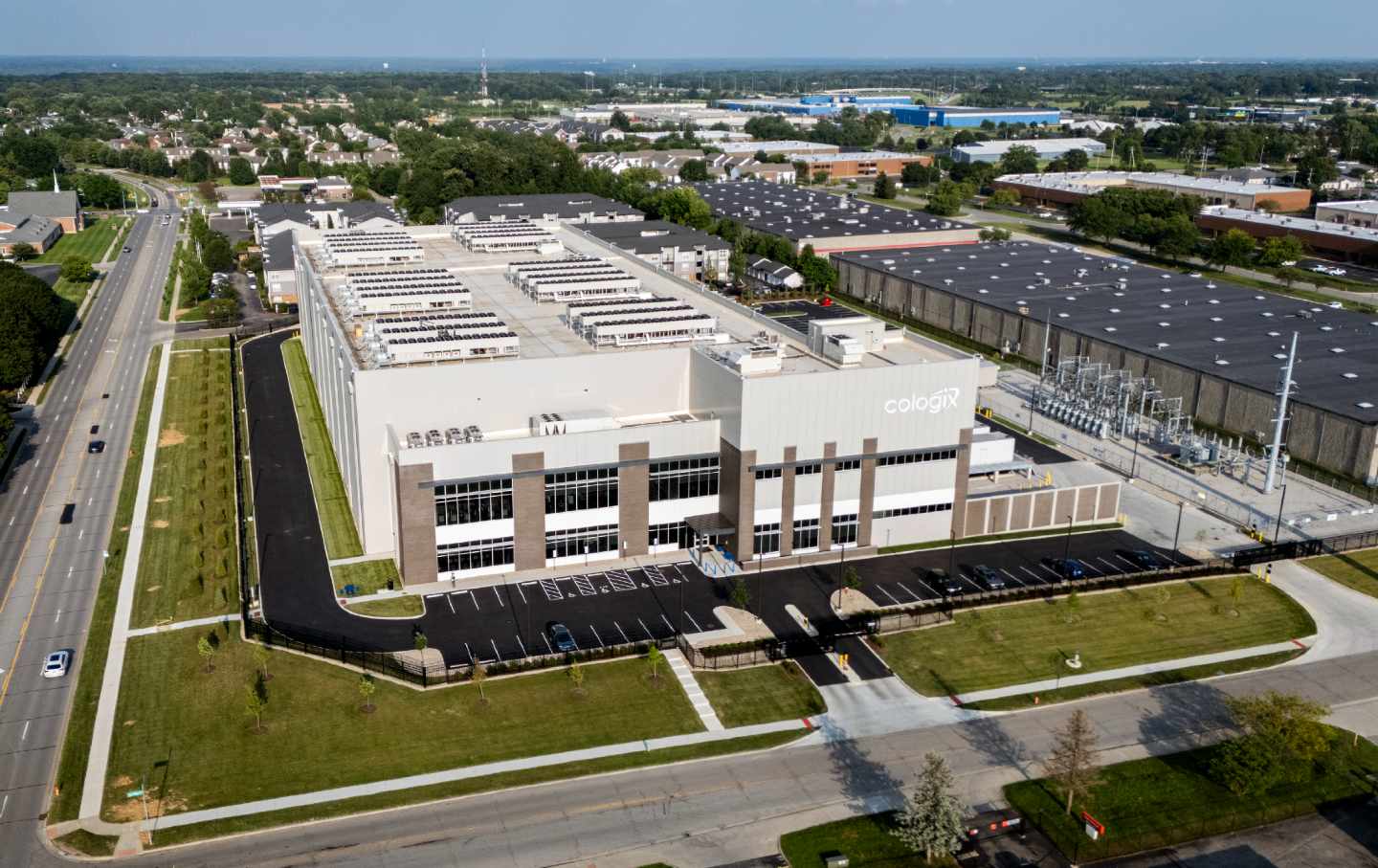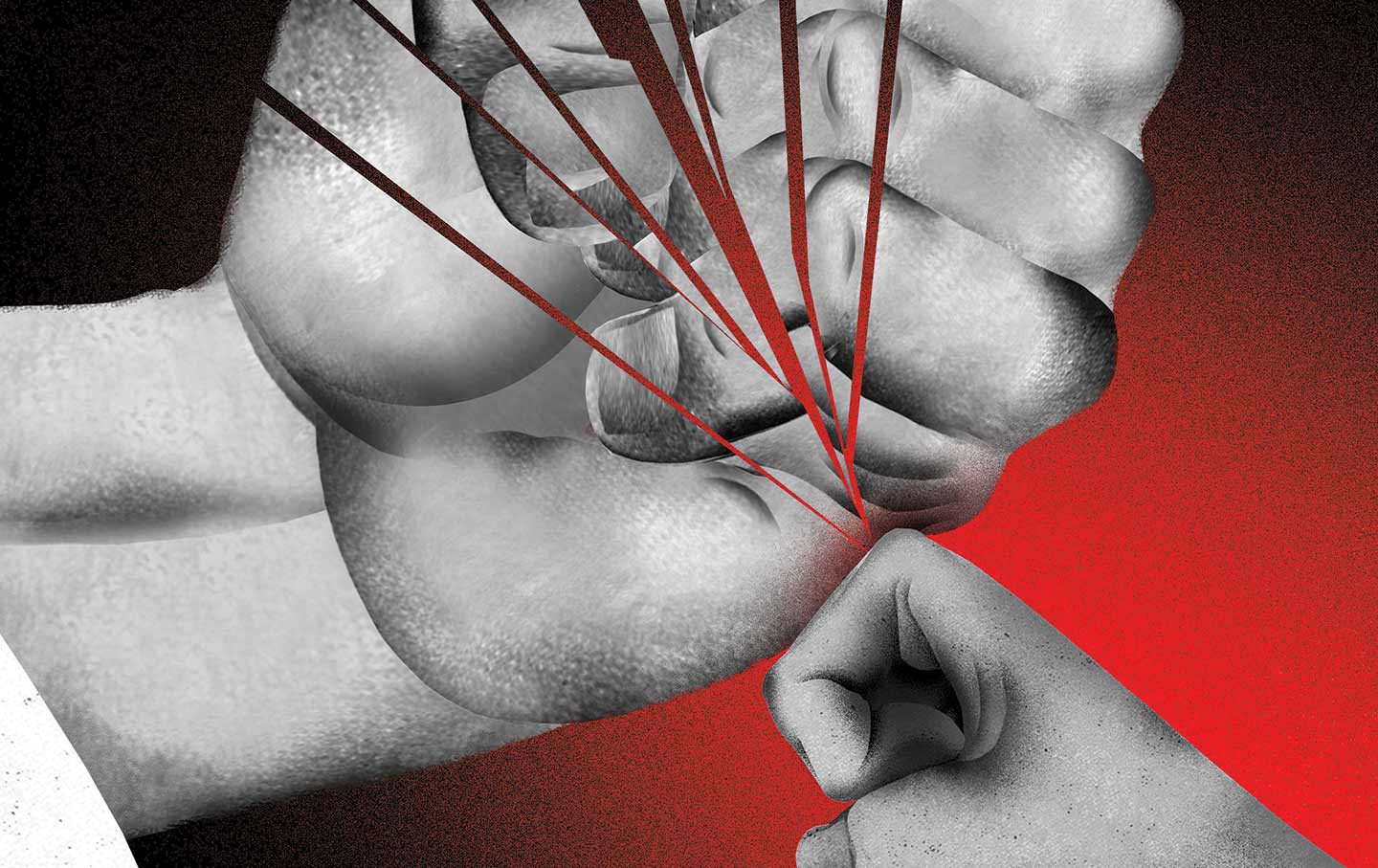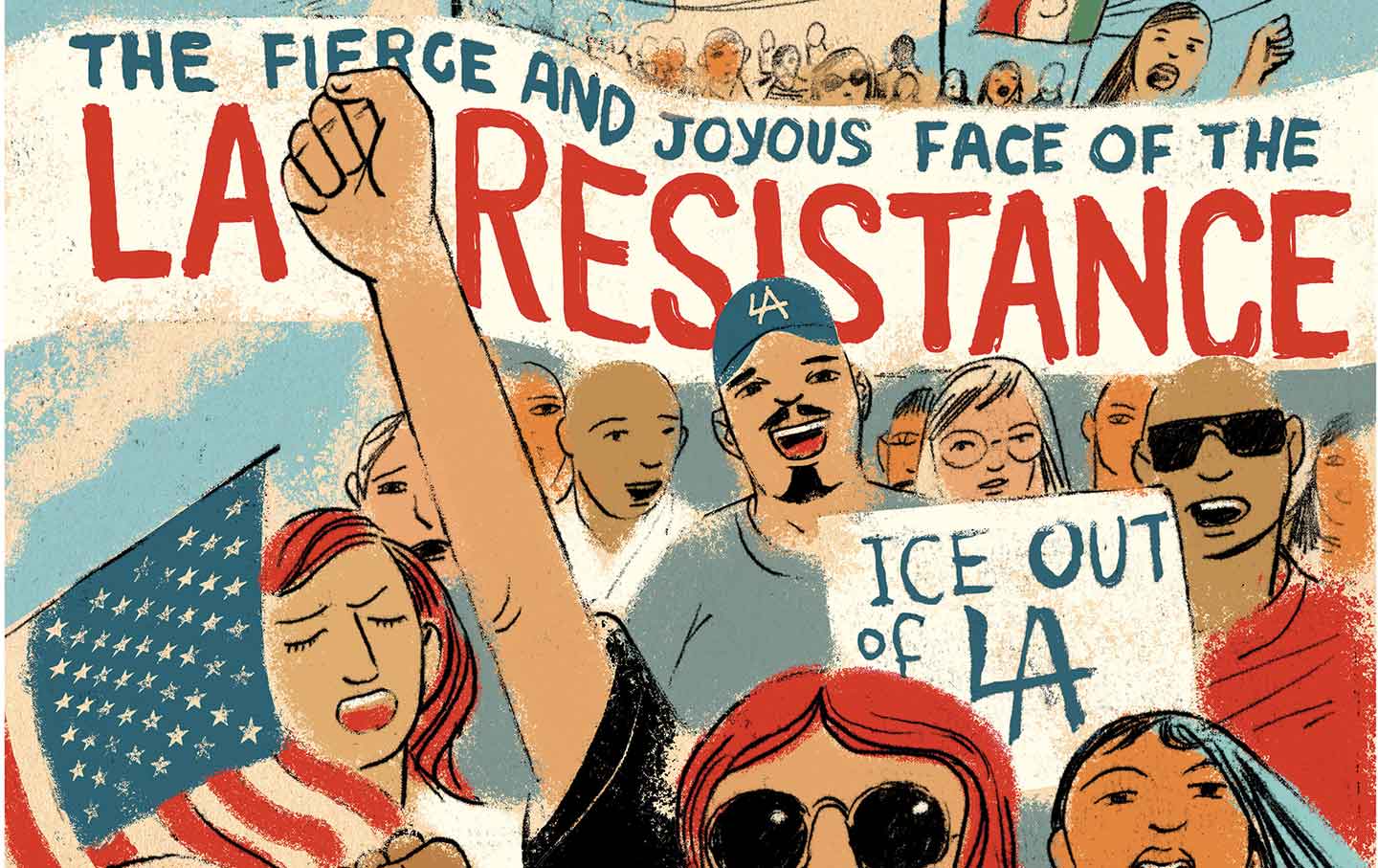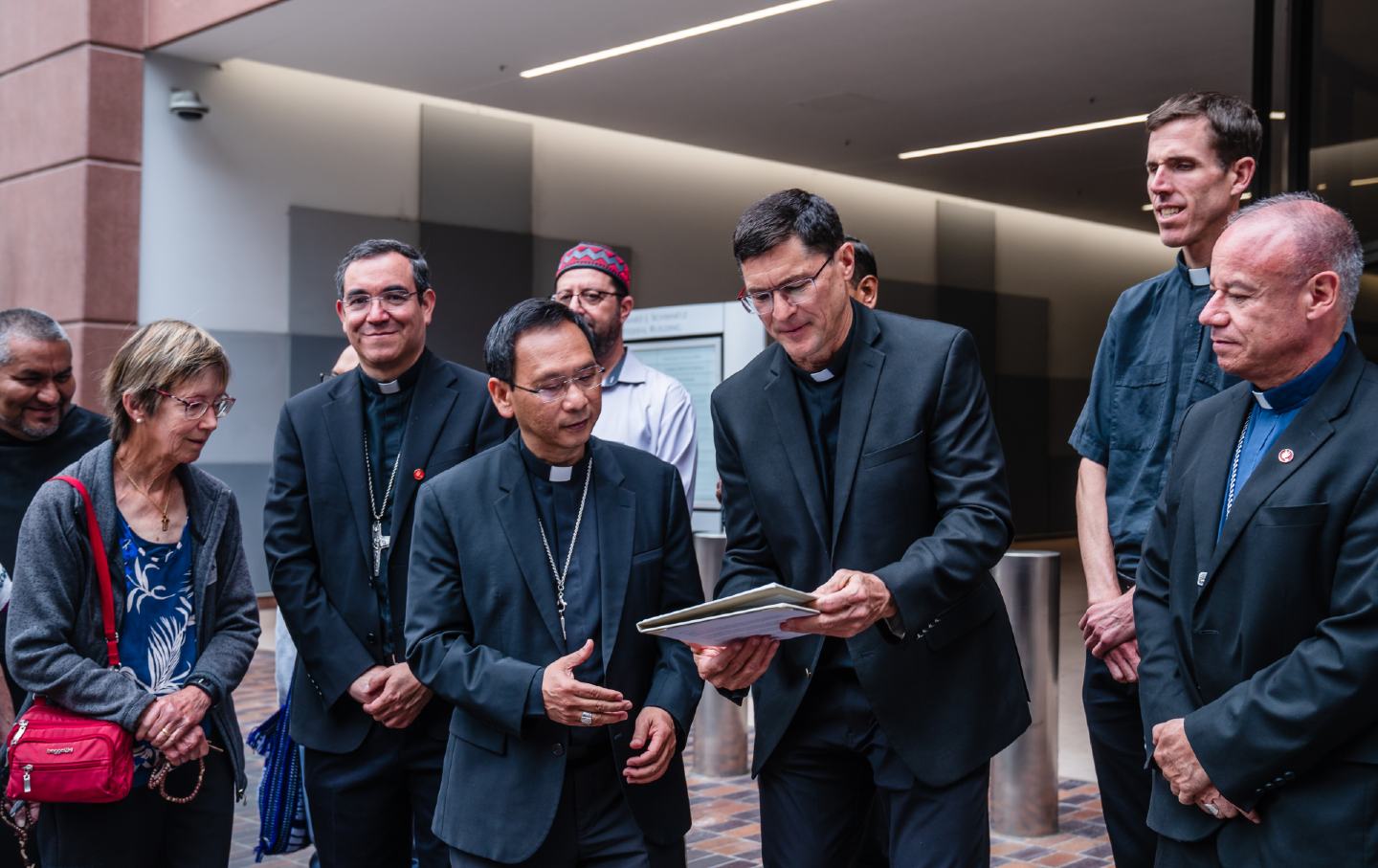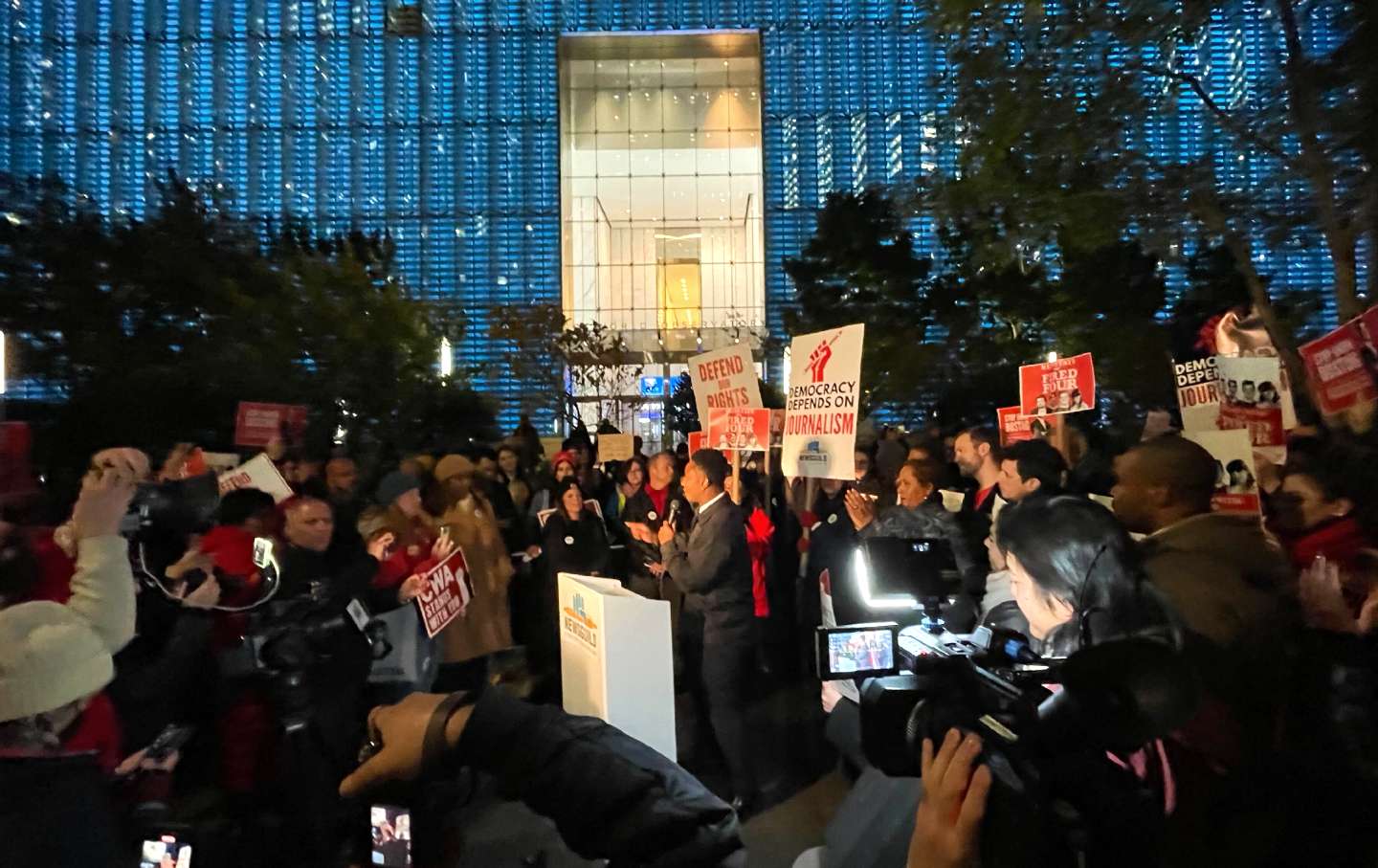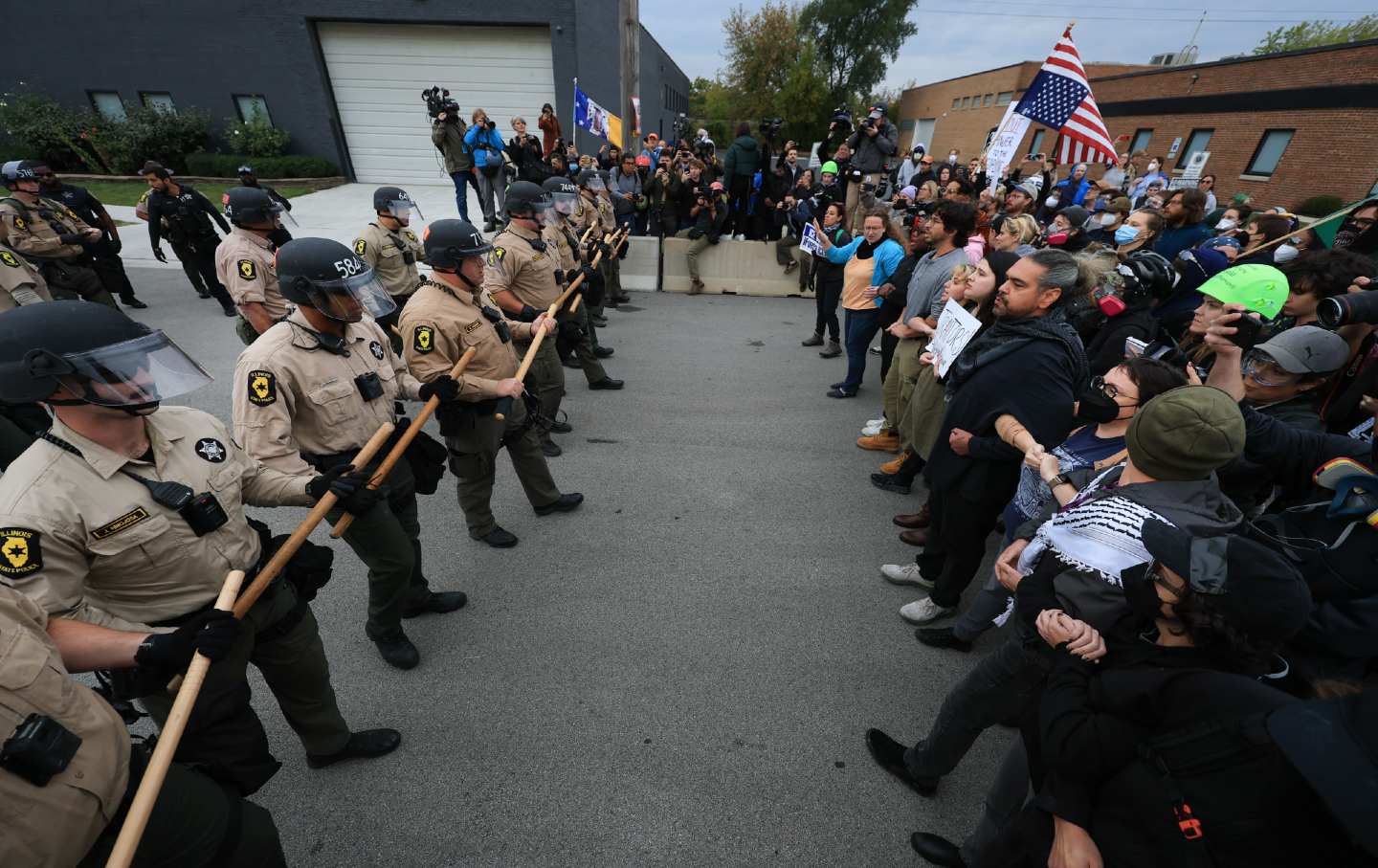James Lawson Led the Faith-Based Struggle Against Plantation Capitalism
The civil rights icon preached that God believed “that people should be fed, that people should have access to life, that people should be treated equally and justly.”
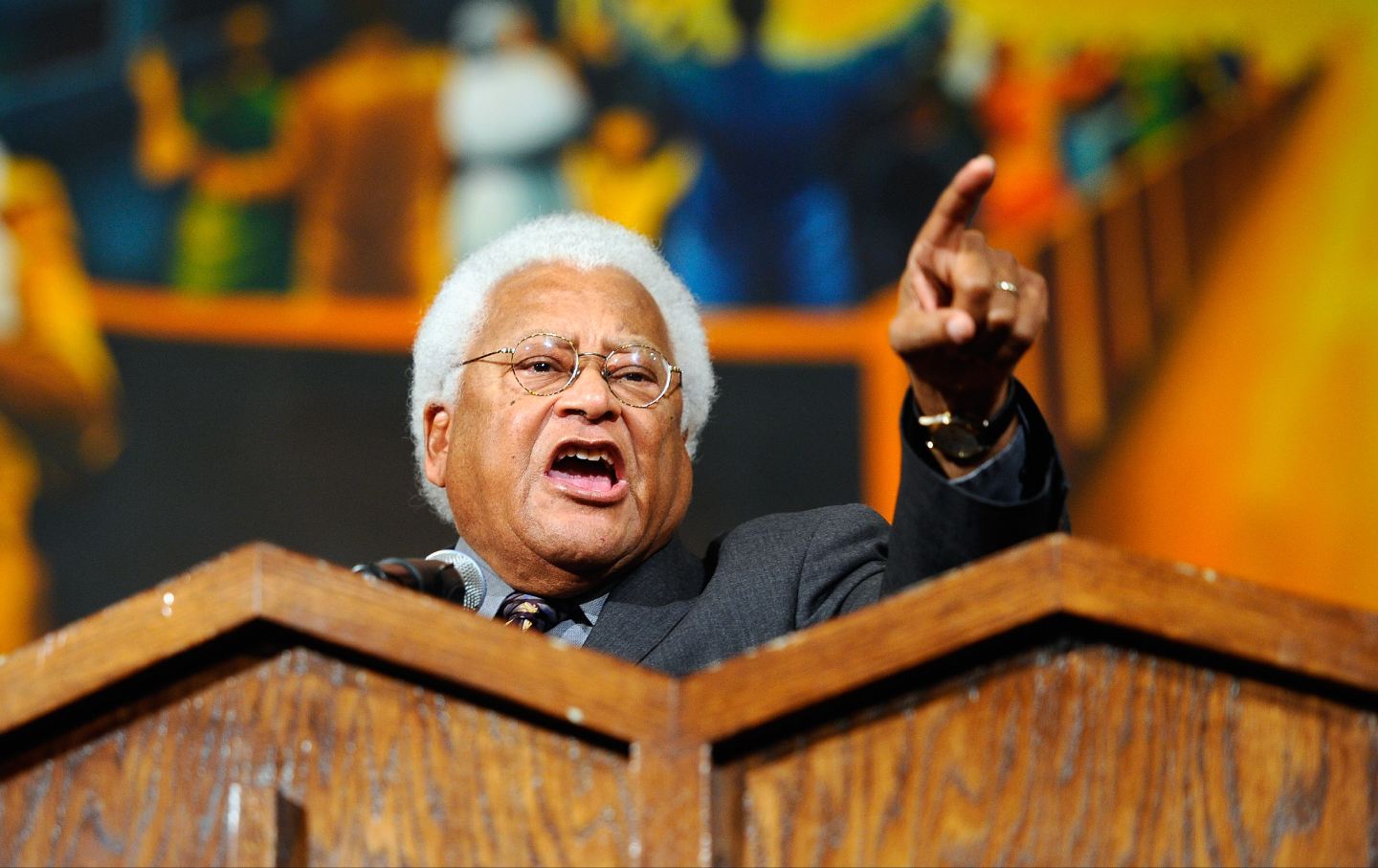
The Rev. James Lawson speaks from the pulpit of the First AME Church during an event in solidarity with union workers in Wisconsin on April 4, 2011, in Los Angeles, California.
(Kevork Djansezian / Getty Images)The Rev. James M. Lawson Jr. lived long enough to preach at the funerals of several of the American leaders he had mentored in the civil rights and labor movements of the 20th and 21st centuries. And Lawson never took his eyes off the prize. To the very end of his life, the revered religious leader and academic, who died last week at the age of 95, lifted up a radical gospel of justice that featured a wise and necessary critique of American capitalism.
That critique was central to the message Lawson delivered on July 30, 2020, when he delivered an epic funeral oration for the late US Representative John Lewis. Lawson had known Lewis for 60 years and instructed the young civil rights activist in the tactics of nonviolent civil disobedience that the only somewhat older pastor had learned in India as a student of the teachings of Mahatma Gandhi.
The then-91-year-old Lawson reflected briefly on the history he had been a part of as a visionary strategist at the founding of the Student Nonviolent Coordinating Committee, and as an essential ally of the Rev. Dr. Martin Luther King Jr. during the great civil rights and economic justice struggles of the 1960s, including the 1968 strike by sanitation workers in Memphis. (It was Lawson who, as the chairman of the strike committee, invited King to Memphis, where the Nobel Peace Prize winner delivered his “I Have Been to the Mountaintop” speech on the night before King’s assassination; King once called Lawson “the leading theorist and strategist of nonviolence in the world.”)
But what distinguished Lawson’s speech from those of the former presidents and other dignataries who gathered to honor Lewis’s memory was his determination not simply to discuss the past but also use his platform to move the justice fight forward.
Always conscious of the intersections between racial and economic justice, Lawson stirred the mourners who had gathered inAtlanta’s Ebenezer Baptist Church with a call to action:
Let all of us in this service today, let all the people of the USA determine that we will not be quiet as long as any child dies in the first year of life in the United States. We will not be quiet as long as the largest poverty group in our nation are women and children. We will not be quiet as long as our nation continues to be the most violent culture in the history of humankind. We will not be quiet as long as our economy is shaped not by freedom but by plantation capitalism that continues to cause domination and control rather than access and liberty and equality for all!
That distinctive reference to “plantation capitalism” was central to Reverend Lawson’s message. For decades, he preached a gospel that identified “the forces of spiritual wickedness…in our land” as racism, sexism, violence, and plantation capitalism. “Our history has shaped us more than what we think it has. We’ve had plantation capitalism for almost 300 years,” he explained at an AFL-CIO Diversity Conference in 2013, continuing:
“We imposed it on the Indians because we took the land from them and reduced them to poverty. We refused to recognize the right of women to equality. We hung people who were called witches. We established slavery of African people for 250 years. Then we continued the economic oppression of that system with the Jim Crow law, which was saying that certain kinds of people couldn’t do certain kinds of work.… All of that I consider plantation capitalism. Plantation capitalism’s major error is that it seesall kinds of people as not human beings. I see it especially today in the effort to reduce workers’ benefits and pay—and, in particular, with the large numbers, millions of people, who work—sometimes two adults in the same household working—and still have to struggle to be sure they’re going to have food next week.”
A lifelong advocate for worker’s rights, Lawson denounced right-wing Republicans—many of whom framed their politics in religious terms—when they attacked unions. He was particularly pointed in his criticism of former Wisconsin Governor Scott Walker, who in the early 2010s led a high-profile assault on collective bargaining rights for public employees, both in his own state and nationally.
When Lawson delivered the 2015 Jerry Wurf Memorial Lecture at Harvard Law School in 2015, Walker was preparing a Republican presidential bid. Lawson explained that
the experiment to have a democratic society is the most important experiment the human race has launched, probably ever. To lift human life to a level where we have the capacity to govern ourselves and to live with one another and to create cooperation rather than war and violence is the great frontier for the 21st century and beyond. And in that act of shaping democratic society, unions are absolutely essential. Which means that the Scott Walkers, and the Chamber of Commerce, do not really want democratic society.…
I think the labor movement in the United States, AFL-CIO, must begin to attack the Scott Walkers as being anti-democratic and anti-American, and anti-Constitution, because they want to wipe out the right of working people to organize for themselves. So that their lives can make a contribution to developing our understanding of being a people who are in an experiment. Of developing a different kind of society, not top down, but grassroots up. Not the almighty and all powerful governing and demanding and engaging in tyranny, but with the idealism and the freedom of the people who know[:]
You have to have an engaged citizenry.
Lawson did not reserve his criticism only for Republicans.”The Democratic Party pretends to be working for the welfare of the American people, but, again and again, comes down on the side of fracking, on the side of hedge funds and Bank of America,” he warned in 2013, before adding that the party also “comes down all the time on using our military bases abroad for the purpose of subduing other people and dominating them.”
Lawson’s critique extended beyond the political class. The man who, as the Rev. Wiilliam Barber II put it, “taught people how to be on fire for justice and truth without burning down that which you are trying to save,” also taught that faith leaders must rise above partisanship and ideology to amplify the core premises of Christianity.
“The politics of Jesus and the politics of God are that people should be fed, that people have access to life, that people should be treated equally and justly,” explained Lawson. “Especially the marginalized. The poor, the illiterate, the jailed, the hungry, the naked—those are all terms Jesus uses. The alien, the stranger, the foreigner, you’re supposed to treat them as you do yourself.”
To do this, Lawson, the great builder of the civil rights movement, argued that more organizing, more rallying, and more marching would be required—to build movements that are strong enough, bold enough, and brave enough to “challenge plantation capitalism.”
Disobey authoritarians, support The Nation
Over the past year you’ve read Nation writers like Elie Mystal, Kaveh Akbar, John Nichols, Joan Walsh, Bryce Covert, Dave Zirin, Jeet Heer, Michael T. Klare, Katha Pollitt, Amy Littlefield, Gregg Gonsalves, and Sasha Abramsky take on the Trump family’s corruption, set the record straight about Robert F. Kennedy Jr.’s catastrophic Make America Healthy Again movement, survey the fallout and human cost of the DOGE wrecking ball, anticipate the Supreme Court’s dangerous antidemocratic rulings, and amplify successful tactics of resistance on the streets and in Congress.
We publish these stories because when members of our communities are being abducted, household debt is climbing, and AI data centers are causing water and electricity shortages, we have a duty as journalists to do all we can to inform the public.
In 2026, our aim is to do more than ever before—but we need your support to make that happen.
Through December 31, a generous donor will match all donations up to $75,000. That means that your contribution will be doubled, dollar for dollar. If we hit the full match, we’ll be starting 2026 with $150,000 to invest in the stories that impact real people’s lives—the kinds of stories that billionaire-owned, corporate-backed outlets aren’t covering.
With your support, our team will publish major stories that the president and his allies won’t want you to read. We’ll cover the emerging military-tech industrial complex and matters of war, peace, and surveillance, as well as the affordability crisis, hunger, housing, healthcare, the environment, attacks on reproductive rights, and much more. At the same time, we’ll imagine alternatives to Trumpian rule and uplift efforts to create a better world, here and now.
While your gift has twice the impact, I’m asking you to support The Nation with a donation today. You’ll empower the journalists, editors, and fact-checkers best equipped to hold this authoritarian administration to account.
I hope you won’t miss this moment—donate to The Nation today.
Onward,
Katrina vanden Heuvel
Editor and publisher, The Nation

